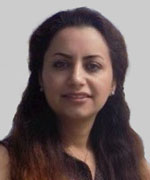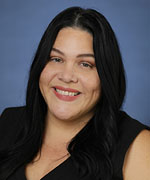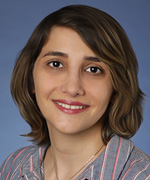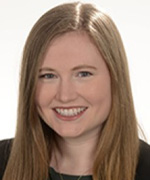Neuroradiology Fellowship
Neuroradiology Fellowship


Program Director:
Maryam Shahrzad, M.D.

Program Coordinator:
Tonya Chavez
tmachavez@health.ucdavis.edu
Number of Fellowship Positions: Three per year
Duration of Fellowship: One year
The Neuroradiology Fellowship in the Department of Radiology at the UC Davis Medical Center is a one-year ACGME-accredited program designed to provide a comprehensive training environment in diagnostic neuroradiology for board certified/eligible radiologists. The fellowship provides trainees with the opportunity to develop, under supervision, progressively independent skills in the performance and interpretation of neuroradiologic imaging studies and invasive procedures.
The fellowship program is based at the UC Davis Medical Center campus located in California’s capitol city of Sacramento. The medical school, multidisciplinary cancer center and several research groups — including the MIND Institute, the imaging research center and the telemedicine group — are located on site along with the main hospital. The hospital provides tertiary care in all fields of medicine, and is a referral center for patients throughout Northern California, Oregon and Nevada. The UC Davis Children’s Hospital is located on campus and is also partnered with Shriner’s Hospital for Children, where patients with complex neuromusculoskeletal conditions are diagnosed and treated.
The greater Sacramento area provides a wide range of activities for all interests, with an active arts community, including the internationally known Sacramento Ballet and the Mondavi Center for the Performing Arts, professional sports teams including the Sacramento Kings, and a variety of award-winning restaurants and entertainment venues. It is also located a mere 80 miles east of San Francisco and the greater Bay Area, as well as 80 miles west of Lake Tahoe, which is home to some of the best and most picturesque skiing in the country.
Clinical Training:
Diagnostic Neuroradiology:
Diagnostic neuroradiology fellowship rotations include general neuroradiology, head and neck, spine and pediatric imaging. Each fellow will interpret at least 1,500 neuroradiological CT scans, 1500 neuroradiological MR scans and 250 MR/CT angiograms in adult and pediatric patients.
In the general neuroradiology rotation, there is an emphasis on standard imaging modalities and sequences, but there is also intensive exposure to advanced CT and MR techniques, including CT perfusion, MR spectroscopy, MR perfusion, dynamic CSF flow imaging and diffusion tensor imaging. Fellows are trained in and expected to perform the post-processing and interpretation of all of these modalities, in many different applications, including the evaluation of stroke, tumors, and brain injury.
During the Head and Neck rotation, fellows will participate in most of the interventional procedures of the head and neck, including angiography, embolization, and biopsy. Fellows will be involved in multidisciplinary evaluation of complex skull base and head and neck tumors including CT, MR, PET, and SPECT.
During the Spine rotation, in addition to multimodality imaging, fellows will perform a minimum of 50 image-guided invasive spine procedures. This will include, but not necessarily be limited to, diagnostic and therapeutic lumbar punctures, myelograms, cisternograms, blood patches, chemotherapy injections, vertebroplasties, discograms, facet and epidural steroid injections and biopsies.
The Pediatric rotation provides an opportunity to review a large number of studies of patients from UC Davis Children’s Hospital as well as from the adjacent Shriner’s Hospital, entirely staffed by UC Davis radiologists.
Elective Time:
If there is interest fellows, are offered 2-4 weeks of elective time in other radiology and related subspecialties such as pain management. The fellowship is flexible and supports fellows to develop interests or skills needed for future job opportunities, career, or research interests.
Education:
There are two dedicated neuroradiology conferences each week — a didactic lecture on Wednesday mornings and a case conference on Friday mornings. There is a pediatric neuroradiology conference, given the third Wednesday of each month, and fellows are also encouraged to attend the resident pediatric and adult neuroradiology conferences during the noon hour.
Fellows are required to attend and eventually contribute to, all of the inter-disciplinary conferences, with faculty supervision and guidance. Additionally, fellows will provide graduated consultations with referring physicians.
Tumor Boards and Inter-Disciplinary Conferences:
- Skull Base
- Neurovascular
- Neuro-Oncology Tumor Board (separate adult and pediatric)
- ENT Tumor Board
- Epilepsy
- Pediatric Neurooncology Clinic
Fellows will be expected to participate in the education of residents and medical students, as well. Each fellow will give a lecture to the medical students at least once each year and will be responsible for daily teaching “at the board” of residents on the service.
Research:
All fellows are encouraged to participate in research projects currently underway in our section. Fellows are required to submit at least one abstract for presentation at a national meeting. Academic time will be provided if fellows are involved in research projects.
Call Responsibilities:
Call is scheduled for one week, every four weeks. Fellows remain on-call for Q4 weeks, even if there are three fellows.
 |
Elham Tavakkol, M.D.Neuroradiology (ABR Alternate Pathway) Hometown: Ardebil, Iran |
 |
Hallie Whalen, M.D.Neuroradiology Hallie Whalen was born and raised in Maryland. She attended the University of Maryland in Baltimore for medical school and her radiology residency training. In her free time, she enjoys running, trying new restaurants, and spending time with her family. As a family, they like to bake and explore local coffee shops. |
- Completion of an ACGME-accredited internship (PGY-1) year in the United States or Canada.
- Requirements and procedures for licensing in California have changed and are substantially different than years past. Please visit the California Medical Board Licensing Requirements page for specific details of the new requirements. Additional information concerning licensure is available from the Division of Licensing, Medical Board of California, 2005 Evergreen Street, Suite 1200, Sacramento, CA 95825, calling 916-263-2344, or by visiting the Division of Licensing, Medical Board of California website.
To apply, please submit the following materials to the fellowship coordinator at the address below.
-
Current CV.
-
A letter of recommendation from the director of your radiology residency program mailed from the Dean's office directly to our program.
-
Two additional letters of recommendation from physicians of your choice addressed to the fellowship director.
-
Medical school transcripts and USMLE scores.
-
Personal statement.
-
Current photo (to ensure we have the correct applicant with the correct file during rank period).
If you have questions or would like to submit your application materials, please contact:
Tonya Chavez
Program Coordinator
tmachavez@health.ucdavis.edu
